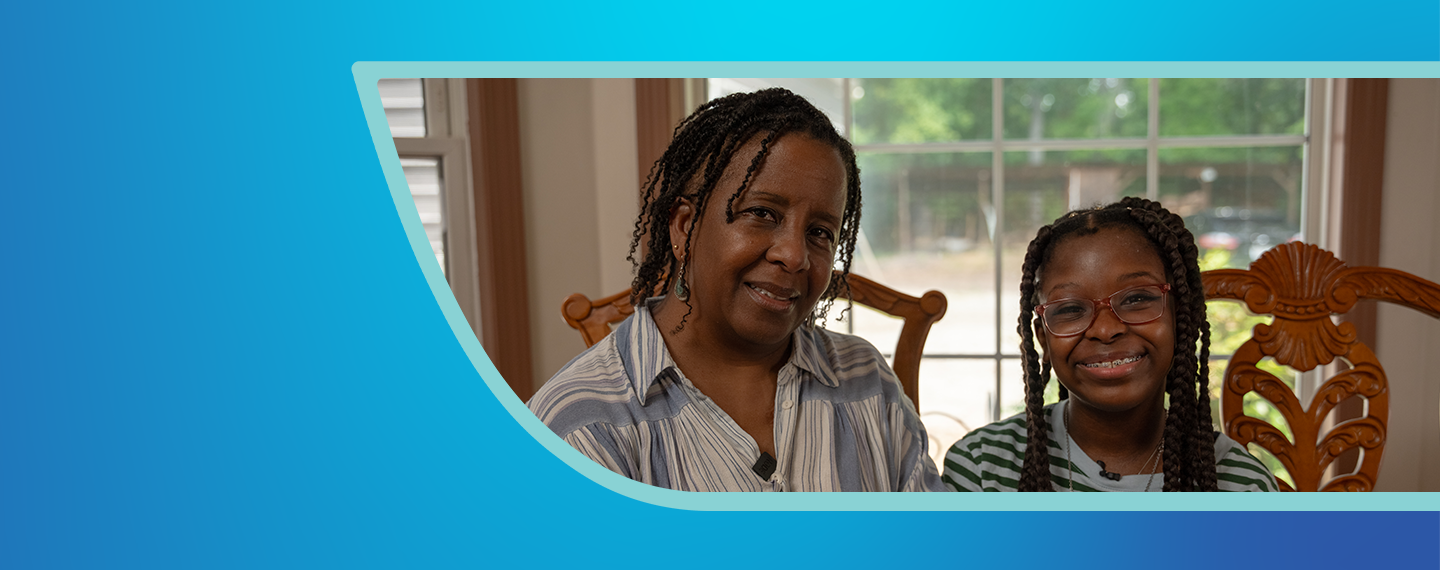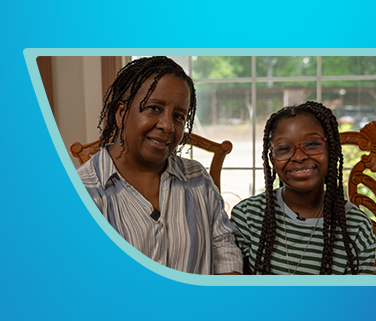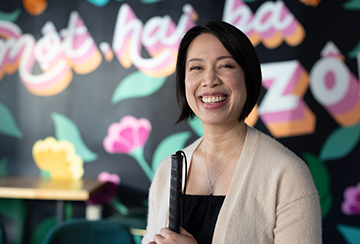"She'll grow out of it."
It's a reassuring phrase, said with the best of intentions to comfort a worried parent. Kathie heard this phrase many times over the years as she sought care for her daughter Nayla's severe atopic dermatitis (also called severe eczema). But it didn't relieve her child's symptoms.
Nayla's Severe Atopic Dermatitis Journey
Nayla, now 14, started to show signs of atopic dermatitis, the most common form of eczema, at just six months old. Tiny, dry spots appeared all over her skin, and it was clear she was uncomfortable. Her mother Kathie was familiar with the condition – her older son was also diagnosed with atopic dermatitis – so she knew to visit her pediatrician. By her first birthday, Nayla had been diagnosed with "The Big Three" – allergies, asthma, and atopic dermatitis. These conditions kept Nayla in an endless cycle of flares.
Nayla saw multiple dermatologists, who prescribed different topical treatments and steroids, but her eczema became more severe. "The flares were out of control, and it was something we had never seen before," Kathie described. They tried everything in an attempt to alleviate Nayla's symptoms. Kathie even put cotton gloves on Nayla's hands at night to prevent her from itching in her sleep and exacerbating her severe eczema. Her itching was so intense that she often ripped holes in her gloves from scratching.
As she got older, Nayla's condition became unbearable. At one point, her symptoms were so serious that she was admitted to the local children's hospital where she was treated for a staph infection that spread into her bloodstream. After the infection resolved, Nayla continued to struggle with her severe eczema. "I couldn't go anywhere because I was constantly curled up in a ball, laying on my couch in pain," Nayla explained. The daily discomfort Nayla faced not only affected her physically, but also impacted her self-esteem. Hurtful comments from classmates made her self-conscious about her skin, and she was embarrassed to look in the mirror or leave the house.
Connecting with the Eczema Community
For Nayla and others living with severe eczema, having a strong support system is crucial. Once they found helpful patient community resources and Nayla started a new treatment plan, Kathie felt like they finally reached a turning point. Nayla's severe eczema became more manageable, which allowed her to focus more on school and activities with friends and less about her severe atopic dermatitis. "I have great friends and support systems," Nayla said, "But I'm especially grateful for my mom. She would come into my room to stay up with me throughout the night, which was a huge help during tough times."
Through Camp Wonder, organized by The Children's Skin Disease Foundation, and the Global Parents for Eczema Research (GPER), Nayla and Kathie have connected with parents and children who are going through similar experiences. The connections and resources provided by these organizations have been instrumental in helping Nayla manage her symptoms and feel more confident. "There's support out there for caregivers and research going on now that is so beneficial to children with severe eczema," said Kathie.
In addition to resources, finding the right care is critical since severe eczema varies depending on the person and shows up differently on darker skin tones. "Talking with a medical professional that understood what we were dealing with and had treated conditions on diverse skin colors was life changing," stated Kathie. While it can sometimes take time to find the right care team, Nayla and Kathie's story is proof that it's worth the effort.
Nayla's Message to Others
Nayla wants to encourage openness and sensitivity when discussing chronic skin conditions. "Questions are perfectly fine, and I want to see open conversations about eczema happening more often. It doesn't need to be a 'hush hush' topic," Nayla emphasized. "But it's important for people my age to be more conscious of what questions to ask, so they don't cross the line." While every person's journey with severe eczema is different, having a solid support system from family, friends, and doctors can make a difference.
To learn more about atopic dermatitis please visit the National Eczema Association's website.





